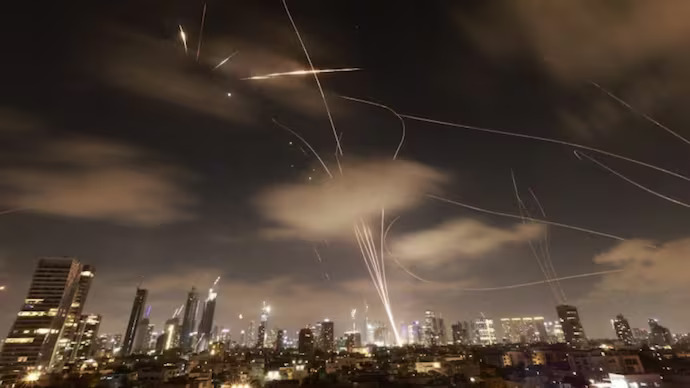
Operation Sindhu: India Begins Emergency Evacuation from Iran Amid Israel-Iran Tensions
New Delhi, June 18, 2025 — In response to escalating military tensions in West Asia, the Indian government has launched Operation Sindhu, a high-priority evacuation mission aimed at bringing back Indian nationals stranded in Iran. The move follows reports of intensifying conflict between Iran and Israel, prompting the Ministry of External Affairs (MEA) to act swiftly to ensure citizen safety.
This marks the latest in a series of rapid-response evacuations by India, highlighting its growing global crisis management capabilities.
Why Operation Sindhu Was Launched
The trigger for this urgent operation came after Iranian forces were reportedly mobilized in response to fresh strikes near their border. With more than 2,500 Indian nationals believed to be living, working, or studying in Iran, the risk of civilian casualties escalated dramatically over the weekend.
The Indian government stated that the safety of its citizens remained a “top national priority,” with Prime Minister Narendra Modi personally overseeing the initiation of Operation Sindhu.
“We are committed to ensuring every Indian abroad is protected. Operation Sindhu is a reflection of that commitment,” said MEA spokesperson Randhir Jaiswal.
How the Evacuation is Being Carried Out
Key Details of Operation Sindhu:
- Evacuation Flights: The Indian Air Force has deployed C-17 Globemaster aircraft to execute the airlift.
- Staging Points: Dubai and Muscat are being used as transit hubs to streamline operations.
- Coordination: The MEA is in close contact with Iran’s authorities to ensure safe access to Indian citizens.
- Helpline Support: A 24/7 emergency helpline has been set up for families in India to get updates.
Multiple batches of evacuees have already landed in Delhi and Mumbai, and are being medically screened upon arrival.
India’s History of Large-Scale Evacuations
Operation Sindhu adds to India’s impressive track record of crisis evacuations:
- Operation Ganga during the Ukraine war (2022)
- Operation Kaveri from Sudan (2023)
- Vande Bharat Mission amid COVID-19 (2020)
India’s foreign policy has evolved to include robust citizen-focused diplomacy, especially during emergencies abroad.
Voices from the Ground
Several Indian nationals who arrived in Delhi shared their relief and gratitude.
“We heard explosions near our campus in Tehran. Within hours, the Indian embassy arranged everything. We’re safe because they acted fast,” said Rhea Kapoor, a medical student.
Families in India, meanwhile, have praised the government’s quick response and transparent communication.
Global Implications of Iran-Israel Conflict
The worsening situation between Israel and Iran has broader implications for global oil markets and regional security. As a country dependent on energy imports and hosting a large diaspora in the Middle East, India remains deeply invested in the region’s stability.
Analysts believe that Operation Sindhu also serves as a soft power tool, projecting India’s role as a responsible and responsive global actor.
Conclusion: What’s Next?
As the geopolitical landscape in the Middle East continues to shift, India is likely to expand Operation Sindhu in the coming days, possibly coordinating with other nations for joint efforts if the situation worsens.
For now, citizens are advised to register with the Indian Embassy in Iran and follow official advisories.
Stay with Newszery.com for verified updates on Operation Sindhu and all major global developments affecting Indian citizens abroad.




